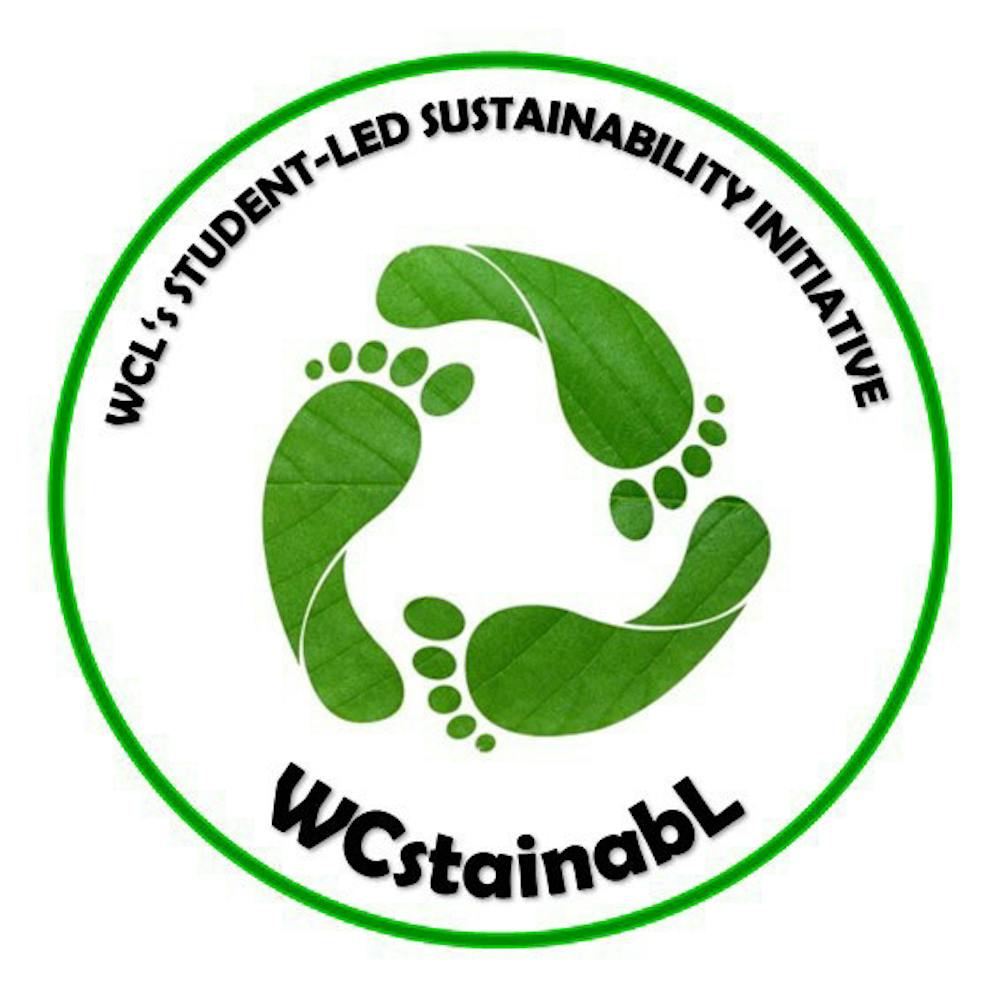WCstainabL is more than just its clever play on the word “sustainable” and American University’s Washington College of Law abbreviation “WCL”: It is bringing the fight for a sustainable future to the forefront of law students’ minds.
Sustainability is a vital issue in the eyes of American University students, with organizations like the Sunrise Movement calling for environmental protections on and off campus. The University also prides itself as “a leader in sustainability,” championing projects like the Eco Pledge, composting on campus and including sustainability in its academic curriculum.
Many of the initiatives that the University operates to advance sustainability, however, are exclusively popular with undergraduates.
The new club for students of law hopes to change that.
Kaja Börner, a Master of Laws student at WCL, founded the organization this summer. Börner came to WCL for the one-year human rights LLM degree, but will graduate in December having kickstarted law student-run sustainability.
When Börner started at WCL, she was “a little shocked, to be honest, because a lot of things were just so unnecessarily not efficient or not working well in sustainability terms.”
Börner noticed that the WCL cafeteria uses single-use silverware, which, while compostable, still take materials to produce and are often mistakenly thrown into the landfill by students.
She also said food waste was a pressing issue, particularly after WCL events with catering. When she went to pick up leftover food after an event, she watched staff dump all of the leftovers into a trash bag.
As someone with an interest in sustainability, she decided to act on her passion.
Börner connected with friends at Georgetown University to explore their sustainability options.
“They have this system where they basically notify all students that food is available for pickup. And then I thought, ‘Hey, okay, we have to do something here on campus as well,’” Börner said.
She got to work by contacting WCL’s Program for Environmental and Energy Law and their program coordinator Ingrid Lesemann to get the club running.
Now, WCstainabL is a student-run team composed of Börner and four other WCL students, whose areas of expertise range from waste reduction to sustainable fashion.
WCstainabL has “three main columns or projects that we’re passionate about. The first is the reduction of food waste, or more positively, food saving and that is directed especially at the food waste from events,” Börner said.
To accomplish this goal, WCstainabL is partnering with WCL’s contracted catering company, CarterTrax.
“We’re trying to create, or recreate, a centralized food waste redistribution system, where basically event organizers have the option to opt into a food waste reduction plan when they order food for their event on the [CarterTrax] website,” Börner said.
Step two of this plan is currently in the works. The hope is for WCstainabL to notify faculty, staff and students via push notifications of what food is available and how long they have to pick it up if interested.
Börner said the club wants to use a messenger platform or even build their own app one day.
The club’s second goal is to improve waste separation.
“On the main campus, they changed the color coding for the compost bins, but that didn’t happen at WCL, which has two huge benefits,” Börner said. “First, we avoid [wasting] the old bins…and second, we make composting easier and more accessible on our campus.”
WCstainabL has been working with the Office of Sustainability on this initiative with the goal of increasing labeling and awareness.
“Often it’s not really ill will” that drives people to throw everything away instead of separating their waste, Börner said, “It’s just a lack of accessibility.”
Their long-term third project is to eliminate single use products.
Börner said that this project has an important tie into their food waste reduction program since “We want to make sure that it doesn’t counterbalance into creating more single use, for example, through single use pickup containers.”
The club hopes to fundraise in the future for reusable dishware and silverware that dining can utilize.
While Börner nears graduation and the club will have a leadership change, she is excited to see what the club has in store next.
“One of my biggest fears, and hopes, is that, since we’re a sustainability initiative, that this initiative is sustainable in itself,” Börner said. “I’m hoping for and looking forward to implementing change that lasts and that is feasible,” she said.
Current WCL students can apply to work on the WCstainabL executive board as a member by emailing sustainability@american.edu or reach out for volunteering opportunities by emailing sustainability@wcl.american.org.
Correction: A previous version of this article incorrectly said the contracted catering company was Sodexo. It has been updated to correctly reflect that the company is CarterTrax.
This article was edited by Sydney Hemmer, Marina Zaczkiewicz and Abigail Turner. Copy editing done by Luna Jinks and Emma Brown.





